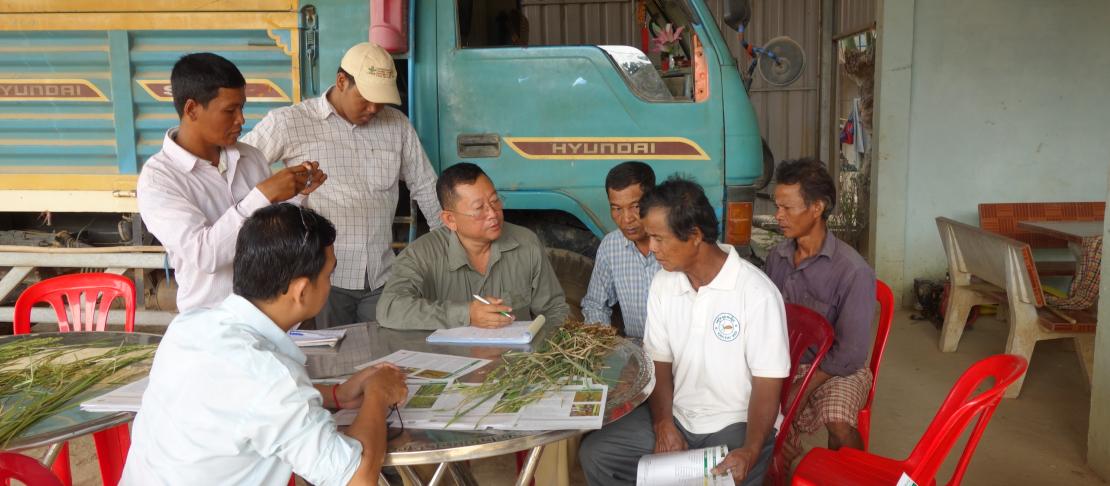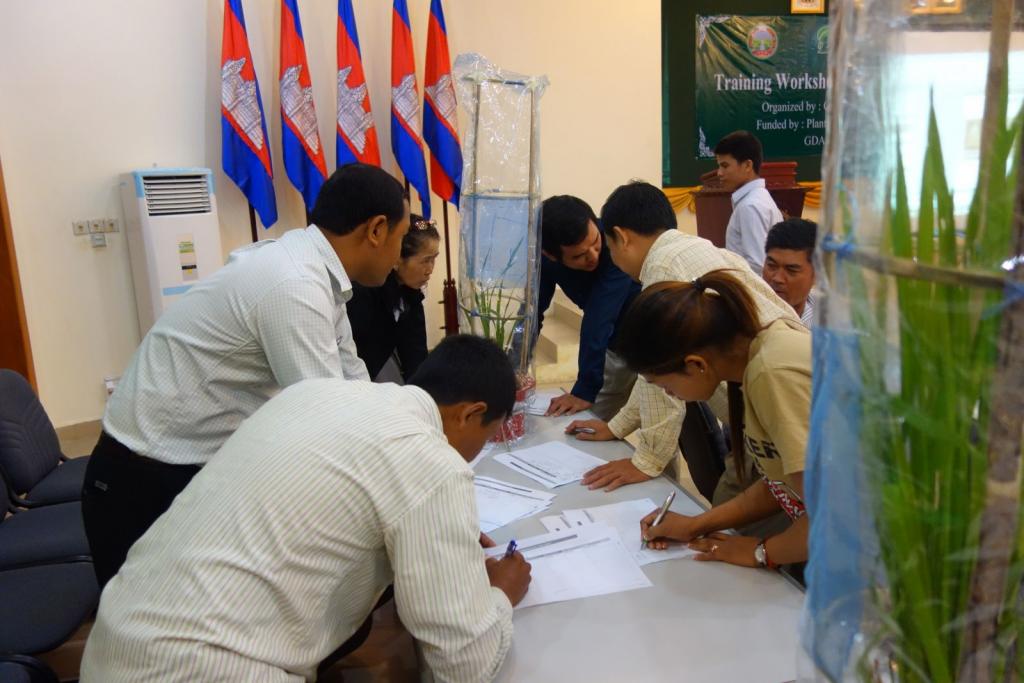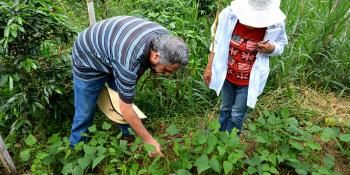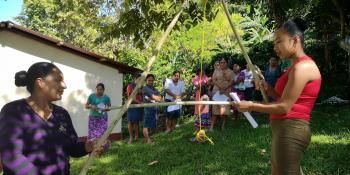Plant doctors to the rescue in integrated pest management

Farmer representatives and project team members of Rohal Suong Climate-Smart Village in Cambodia learn about rice pest management in light of climate change.
Many people attribute floods, droughts and cyclones to climate change and these natural disasters impact greatly on agricultural productivity. But recent scientific evidences show that pests are getting a boost from climate change. The increasing temperature and erratic rainfall cause pests and diseases to thrive and infest crops in wider ranges of places globally.
This has been a crucial issue affecting Rohal Suong, a Climate-Smart Village (CSV) in Battambang province of Cambodia under the CGIAR Research Program on Climate Change, Agriculture and Food Security in Southeast Asia (CCAFS SEA). The community, thus, recognizes the importance of prioritizing integrated pest management (IPM) programs.
The General Directorate of Agriculture (GDA) of Cambodia and the Centre for Agriculture and Biosciences International South East Asia (CABI-SEA) arranged a training workshop, from 28 to 30 March 2016 in Phnom Penh, Cambodia, on rice pest management. The training covered topics like the identification of major pests and diseases, recommended controls, safe use of chemicals and management of a plant clinic.
WorldFish, project lead in Rohal Suong, supported two farmer representatives from the village, and one representative each from local partners, the Battambang’s Provincial Department of Agriculture and the Aphivat Strey Organization, to attend the activity. Other participants included previously trained representatives from the District Office of Agriculture (DAO) and the Provincial Agricultural Departments of the Kandal, Prey Veng and Svay Rieng provinces.
The participants during the training workshop on rice pest management at the General Directorate of Agriculture of Cambodia. The workshop trained farmer representatives and project team members in dealing with pests, especially in the context of climate change. Photo: CABISEA
The training workshop combined theory, discussions and field visits to ensure multi-faceted learning. Experts from GDA and CABI-SEA gave presentations on general pest management. During the discussions, participants talked about their own experiences and challenges, creating opportunity for them to learn from each other, as well as from the experts.
Mr. Khoeun Khon, a farmer from Rohal Suong, shared: “Rice in my area is affected strongly by pests and diseases, and farmers spray pesticides which are recommended by unlicensed shops or/and neighbors. Thus, I will bring the knowledge I have learned to my community.”
Besides discussing pests and diseases, resource persons also talked about the procedures and challenges facing plant clinics.
Mr. Pich Sochheng, a plant health advisor who works at DAO, lamented, “Local farmers did not participate much at first since they do not rely on plant clinics for information and wanted to see immediate results. The plant clinics have to disseminate more information to farmers and work more closely with village and commune authorities.”
A field visit to a plant clinic in Kampong Ta Long village of Kandal Stueng district, Kandal province complemented the scientific presentations. For hands-on learning, the participants, together with invited local farmers, also visited a rice field to identify pests and diseases and collect samples for discussion.
Participants from Battambang spoke of their interest in setting up a plant clinic in their area by June 2016. Despite the potential challenges, they believe this process will build community resilience to climate change and other environmental changes. WorldFish, CABI-SEA and GDA committed to provide reference materials, technical backstopping and other supports necessary in setting up the clinic.
The training workshop is a part of the pest-smart capacity building and CSV project of CABI-SEA, supported by CCAFS SEA.
Read more:




